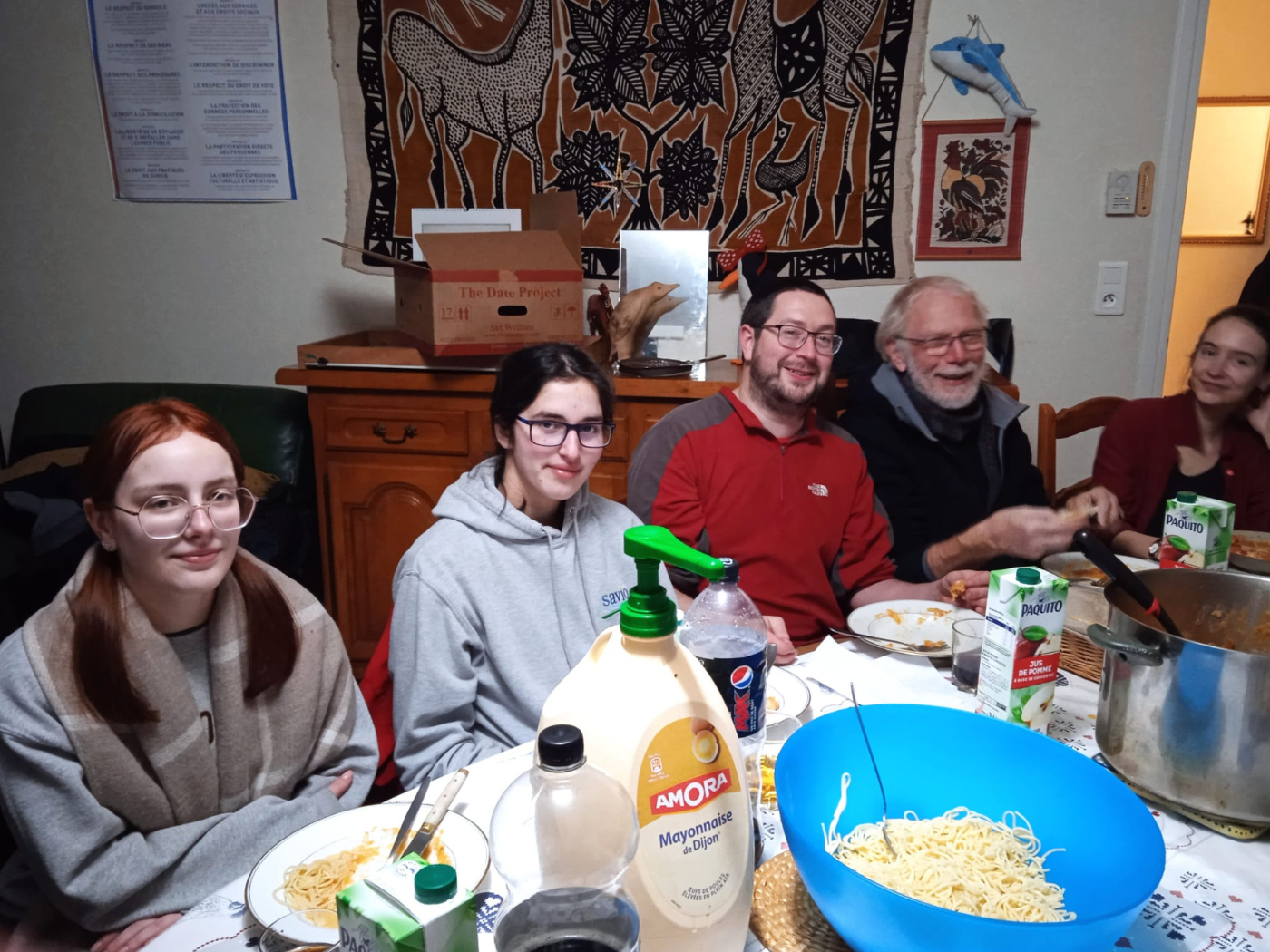I have recently returned from my third visit to Calais, visiting refugee projects, as part of a programme led jointly with Hallam Diocese Youth Ministry. This time was the fulfilment of a plan that began in the days ‘before COVID’ – a programme made up of preparation, encounters, volunteering, prayer, reflection and debrief, for a group of young people and teachers. The need for programmes like this is greater than ever, with misconceptions and misinformation fuelling negative attitudes to people seeking sanctuary.
The time in Calais was busy, as we managed to fit in visits to three projects: Secours Catholique, Care4Calais, and a house of hospitality run by Fr. Philippe Demeestere. The days were long and tiring, and the time allocated for prayer and reflection was vital as we attempted to process what we’d seen and heard. Our final debrief invited us to use the image of a suitcase to consider what we were bringing home.

So… what did I bring back?
Inspiration
Getting hold of Fr. Philippe beforehand was not easy. And once I met him I understood why; he hardly stopped. We shared a meal together, our group sitting down with him and the group of refugees he shares his house with. And although he is in his early 70s, he was busy making things happen – helping our group feel welcome, creating more and more spaces at the table as people kept joining the meal, laughing, joking, telling me something of why he’d felt called to hunger strike for 25 days to “slow the hellish mechanism that subjects exiled people to inhumane and degrading treatment”, about living with 17 refugees during COVID, … I came away inspired by a man living out his Christian faith.

Hope
Secours Catholique is a drop-in centre run by Caritas France. On the afternoon we visited there was a lot going on. I noticed football, phone charging, conversation, chess, draughts, connect 4, art, table football, laundry, interviews, and much more. There were people from so many countries, all rubbing along together, with lots of noise and chatter. I expected our young people to hold back a bit, to stand at the side looking nervous. Not at all! Within minutes they were spread out around the centre, making friends, listening, smiling, playing games. And this is only a snapshot of their wonderful engagement throughout our time in Calais. However tired they were, they always dived in, did what was asked of them and more, and then, although exhausted, reflected deeply on their learning. There is no doubt that they will build on this experience and continue to work for justice for refugees. They were a credit to their families, schools and themselves. I came away filled with hope in young people and their capabilities to build a better world.

Anger
Inspiration and hope, yes, but my overriding emotion is anger. Anger that the whole situation is so completely unnecessary. Frustration that the tragedy in Calais, and the resulting tragedies of people dying en route to the UK, is human-made. That it would take so little to solve most of the problems. We do not take our fair share of the world’s people seeking sanctuary. We welcomed people from Ukraine. They did not have to go through this. We welcomed people from Hong Kong, no problem. There was no need for these people to sleep rough, to survive off hand-outs they had to queue for in the rain, to take horrific risks. But if we can do it for them, why can’t we find a way to offer people in Calais a safe route to claiming asylum in Britain? Why should they be forced into ‘irregular’ entry in order to ask for safety? I think it is a political choice that contradicts our ‘British values’. I came away angry.

The question now is: What to do with these souvenirs, the inspiration, hope and anger I’ve brought back? In my work as the Columban’s Justice and Peace Education Worker, I will continue to help young people and educators explore the relationship between faith and action for the common good. I’ll share, for example, the prophetic witness of Fr Philippe and the many people who are helping refugees and calling for justice, examples of faith lived out. But I’ll do so with a renewed belief in the capacity of young people to make a difference, and to engage with difficult realities. I will continue to volunteer locally with refugee charities. I will pray that our country repents from its shameful failures to welcome people in need. And I will campaign for change, for safe passage, for dignity in our asylum process, for welcome, for the right for asylum seekers to work – and I encourage anyone who reads these words to do the same.
